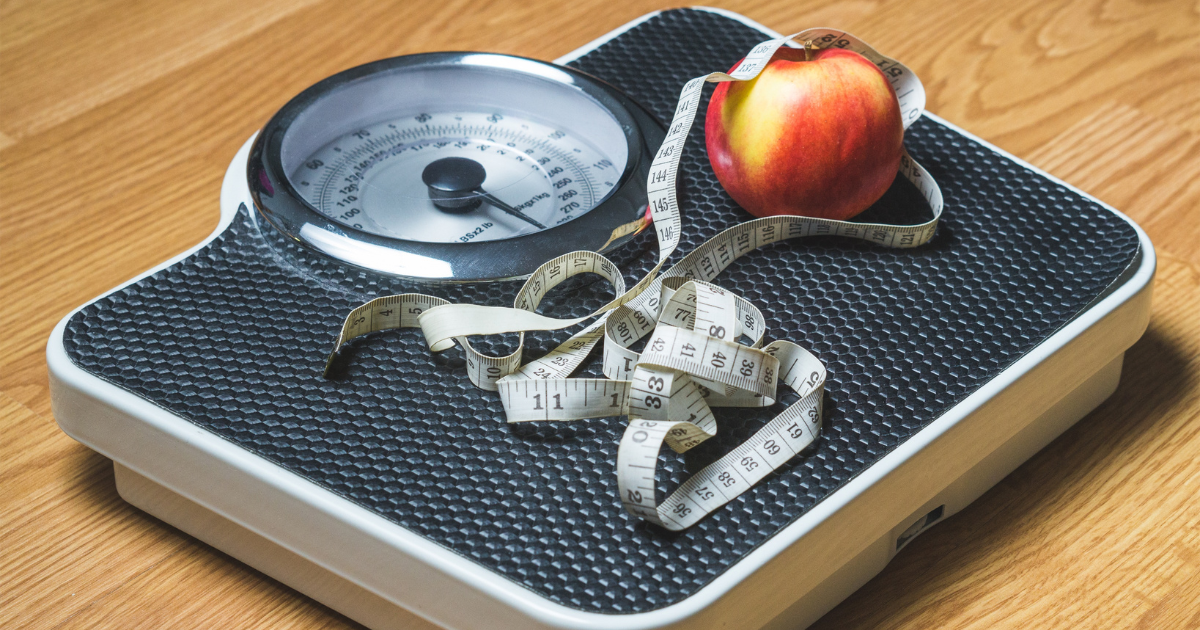A calorie deficit is a fundamental strategy when it comes to losing weight. Simply put, it means consuming fewer calories than your body burns, creating the energy imbalance needed to shed pounds. A deficit of 300–500 calories daily is often recommended for healthy and sustainable weight loss, typically leading to about a pound of fat loss per week.
However, this is a general guideline, and individual needs can vary significantly based on age, activity level, and metabolism. It is wise to consult a healthcare professional or registered dietitian to determine the ideal calorie deficit tailored to your specific needs. While the concept might sound simple, staying consistent with a calorie deficit is where most people face challenges. Let’s explore practical tips and strategies to keep you on track and help you reach your goals.
Understanding Your Calorie Needs
Before exploring weight-loss methods, it’s crucial first to grasp how many calories your body needs to operate and sustain its current weight. This knowledge helps create a plan tailored to your individual needs. Once you know your baseline, you can adjust your calorie intake to achieve a manageable and effective deficit.
- Calculating Your TDEE: Total Daily Energy Expenditure (TDEE) is your body’s total calories daily. It encompasses your Basal Metabolic Rate (BMR), which represents the calories burned while at rest and the calories expended during physical activity. You can estimate your TDEE using online calculators, which require basic details like age, weight, height, and activity level. This figure gives you a clear starting point for creating your calorie deficit.
- Setting a Realistic Calorie Deficit: Once you’ve determined your TDEE, aim to reduce your calorie intake by 300–500 calories daily. This deficit level supports a steady, sustainable weight loss of about 0.5–1 pound per week. Avoid the temptation to drastically cut calories, as extreme restrictions can lead to nutritional imbalances, low energy levels, and increased cravings. Instead, focus on a gradual and consistent approach for better long-term success.
Tips for Staying Consistent
Consistency is the magic ingredient for long-term success. Here are actionable tips to help you stick to your calorie deficit:
1. Prioritize Protein
Protein is a cornerstone of a booming calorie deficit because it keeps you full and satisfied, reducing the likelihood of overeating or snacking on empty calories. Consuming adequate protein also helps maintain muscle mass, which is crucial for keeping your metabolism efficient during weight loss. Adding lean protein sources like chicken, fish, eggs, beans, or tofu can significantly impact your meals. For instance, starting your day with scrambled eggs or enjoying a grilled chicken salad for lunch ensures you stay energized and less prone to hunger. Incorporating protein at every meal and snack sets a solid foundation for consistency in your calorie deficit.
In addition to promoting satiety and preserving muscle, protein also has a thermogenic effect, meaning your body uses more energy to digest it than it does for fats or carbohydrates. This metabolic boost can further support your weight loss goals. To maximize these benefits, focus on high-quality, minimally processed protein sources. Greek yogurt, cottage cheese, and legumes are excellent options to add variety to your meals. Try recipes that pair protein with nutrient-rich ingredients, such as a tofu and vegetable stir-fry or a salmon bowl with quinoa. With protein as a dietary priority, you’ll find it easier to stay on track without feeling deprived.
2. Embrace Fiber-Rich Foods
Fiber is a powerhouse nutrient for staying consistent with a calorie deficit. It promotes fullness by slowing down digestion, helping you feel satisfied for more extended periods after meals. Fruits, vegetables, whole grains, and legumes are fiber-rich and crucial for maintaining a balanced diet. You can make a difference by making simple swaps, such as choosing whole-grain bread over white bread or adding chia seeds to your yogurt. Integrating fiber-rich foods into your meals creates a natural buffer against overeating and unnecessary snacking.
Additionally, fiber supports overall digestive health, ensuring your body processes food effectively and reduces bloating. High-fiber foods are often lower in calories, so you can enjoy more significant portions without surpassing your calorie goals. For example, a hearty salad with leafy greens, cucumbers, and chickpeas is filling and calorie-friendly. Incorporating a variety of colorful fruits and vegetables boosts your fiber intake and ensures you get a wide range of vitamins and minerals. Make fiber a staple in your diet, and you’ll notice improved satiety and a more consistent approach to your calorie goals.
3. Stay Hydrated
People often overlook hydration, even though it’s vital for weight loss. Drinking enough water helps regulate appetite, as thirst is sometimes mistaken for hunger. Sipping water throughout the day, especially before meals, can reduce overall calorie intake. Having a reusable water bottle within reach encourages hydration, and adding a slice of lemon or cucumber can enhance the flavor of plain water. Establishing a routine around hydration, such as drinking a glass of water upon waking and before every meal, creates a foundation for consistency.
In addition to managing hunger, staying hydrated supports your body’s metabolic processes and overall well-being. Dehydration can cause tiredness, making it more challenging to maintain your calorie deficit or remain consistent with your exercise routine. If plain water feels monotonous, herbal teas or naturally flavored water are excellent alternatives. Foods with high water content, like watermelon, cucumbers, and oranges, can also contribute to your daily hydration goals. Staying adequately hydrated is a straightforward but effective way to keep progressing in your weight loss journey.
4. Practice Mindful Eating
Mindful eating is a transformative practice that shifts your focus to the experience of eating rather than mindlessly consuming food. This approach encourages you to savour every bite, appreciating your meal’s flavours, textures, and aromas. Eating slowly and chewing enhances enjoyment and allows your brain to recognize when you’re full if you do it thoroughly. This simple practice will enable you to prevent overeating. Eliminating distractions like turning off the TV or putting your phone away during meals allows you to recognize your hunger and fullness cues better. Practicing mindfulness fosters a healthier relationship with food and helps prevent eating driven by emotions or boredom.
Beyond portion control, mindful eating fosters a sense of gratitude for your meals and encourages better choices. When fully present, you’re more likely to notice how certain foods make you feel, steering you toward nutrient-dense options that align with your goals. Techniques like using smaller plates or pausing between bites can further enhance this practice. Over time, mindful eating becomes a habit that supports your calorie deficit without the need for strict rules or calorie counting. This shift in perspective makes staying consistent with your weight-loss plan feel less restrictive and more empowering.
5. Plan Your Meals
Meal planning is one of the most effective strategies for maintaining a calorie deficit and avoiding impulsive food choices. Prepping meals in advance ensures that healthy, balanced options are always available, reducing the temptation to grab high-calorie convenience foods. For instance, preparing a week’s worth of grilled chicken, roasted vegetables, and cooked quinoa can simplify your routine and keep your diet on track. A plan also helps you control portion sizes, making staying within your calorie targets easier. Investing a few hours weekly in meal prep saves time and minimizes decision fatigue.
Planning meals also allows you to be intentional about incorporating a variety of nutrients into your diet. Creating a shopping list based on your planned meals ensures you buy what you only need, reducing food waste and saving money. Batch cooking soups, stews, or casseroles in advance makes it simple to have a nutritious meal ready anytime. Additionally, using portioned containers helps you stick to your calorie goals effortlessly. When you prepare ahead, staying consistent with your calorie deficit becomes much more accessible, even on busy days.
6. Incorporate Regular Exercise
Exercise complements a calorie deficit by boosting your overall calorie burn and improving your physical and mental health. Cardio and strength training are the most effective approaches to achieving lasting weight loss. Cardio activities like walking, cycling, or swimming help burn calories, while strength training builds muscle, which increases your resting metabolic rate. Consistent exercise boosts fat loss and increases energy, helping you stay motivated and consistent. Engaging in activities you love, like dancing or hiking, can turn exercise into a fun lifestyle habit instead of a task.
Exercise burns calories and provides mental health benefits like stress relief and mood improvement. These benefits help control emotional eating and keep you aligned with your goals. Scheduling regular workouts ensures they become a non-negotiable part of your routine. Even small activities, like taking the stairs or doing a quick home workout, can add up over time and support your progress. Incorporating exercise into your plan creates a more balanced approach to weight loss, going beyond dieting alone.
Overcoming Common Challenges
Maintaining a consistent calorie deficit can take time and effort despite the best intentions. Unexpected hunger, emotional triggers, and waning motivation often stand in the way. However, by addressing these obstacles with practical strategies, you can stay on track and maintain steady progress toward your goals.
1. Dealing with Hunger Pangs
Hunger is one of the most common challenges when maintaining a calorie deficit, but it doesn’t have to derail your efforts. Start by staying hydrated, as thirst is often mistaken for hunger. Drinking water before meals or when hunger strikes can help curb your appetite. Fiber-rich snacks like carrot sticks, cucumber slices, or a small handful of nuts are also excellent options to keep hunger at bay without adding too many calories. Redirecting your attention with a hobby, a brief walk, or an enjoyable activity can help shift your focus away from food and back to your next planned meal. You can manage hunger effectively and stay consistent with smart snacking, hydration, and mindfulness.
2. Avoiding Emotional Eating
Emotional eating often stems from stress, boredom, or strong emotions, making it difficult to stick to a calorie deficit. Identify your emotional triggers and find healthier coping mechanisms to overcome this challenge. Journaling, deep breathing, or engaging in a calming hobby can help redirect your emotions without resorting to food. Physical activities like a quick workout or yoga distract, boost your mood, and relieve stress. Building a support network of friends or family provides comfort and accountability. Addressing the root causes of emotional eating can prevent it from derailing your progress.
3. Staying Motivated
Motivation can fluctuate, but staying consistent is crucial for achieving lasting weight loss success. Start by setting realistic goals and breaking them into smaller milestones to celebrate. Using a tracking app or journal to log your progress lets you see how far you’ve come, inspiring you. Non-food rewards, such as buying new workout gear, enjoying a spa day, or treating yourself to a movie, can help reinforce your efforts. Remember to focus on the non-scale victories, such as improved energy levels or fitting into an old pair of jeans. Staying motivated is about celebrating progress and keeping your vision of success alive.
Building a Sustainable Weight Loss Path with a Calorie Deficit
Consistency in a calorie deficit doesn’t require perfection, just persistence. You can create a sustainable path toward your goals by understanding your calorie needs, prioritizing nutrient-dense foods, and practicing mindfulness. Enjoying occasional treats and listening to your body’s signals is okay. With patience and consistency, lasting results will follow. If you feel stuck, consult a nutritionist or fitness professional for guidance. Celebrate every step of your journey—progress is progress, no matter how small. You’ve got this!




